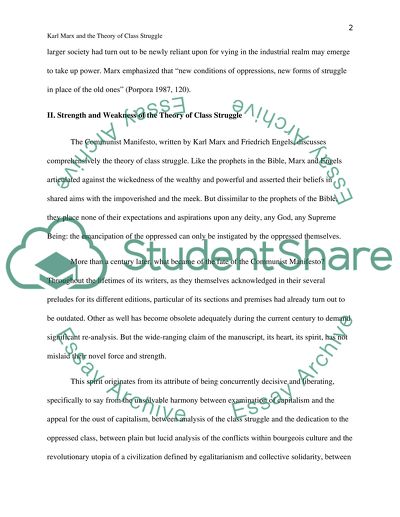Cite this document
(Karl Marx and the Theory of Class Struggle Essay, n.d.)
Karl Marx and the Theory of Class Struggle Essay. https://studentshare.org/philosophy/1554381-investigate-carl-marx-revolution-theory-relationship-between-the-poleteriat-and-the-bougeise-critically-evaluate-it-demonstrating-understanding-of-the-theory-identify-strength-and-weakness-counter-arguments-and-how-it-affects-the-future
Karl Marx and the Theory of Class Struggle Essay. https://studentshare.org/philosophy/1554381-investigate-carl-marx-revolution-theory-relationship-between-the-poleteriat-and-the-bougeise-critically-evaluate-it-demonstrating-understanding-of-the-theory-identify-strength-and-weakness-counter-arguments-and-how-it-affects-the-future
(Karl Marx and the Theory of Class Struggle Essay)
Karl Marx and the Theory of Class Struggle Essay. https://studentshare.org/philosophy/1554381-investigate-carl-marx-revolution-theory-relationship-between-the-poleteriat-and-the-bougeise-critically-evaluate-it-demonstrating-understanding-of-the-theory-identify-strength-and-weakness-counter-arguments-and-how-it-affects-the-future.
Karl Marx and the Theory of Class Struggle Essay. https://studentshare.org/philosophy/1554381-investigate-carl-marx-revolution-theory-relationship-between-the-poleteriat-and-the-bougeise-critically-evaluate-it-demonstrating-understanding-of-the-theory-identify-strength-and-weakness-counter-arguments-and-how-it-affects-the-future.
“Karl Marx and the Theory of Class Struggle Essay”. https://studentshare.org/philosophy/1554381-investigate-carl-marx-revolution-theory-relationship-between-the-poleteriat-and-the-bougeise-critically-evaluate-it-demonstrating-understanding-of-the-theory-identify-strength-and-weakness-counter-arguments-and-how-it-affects-the-future.


